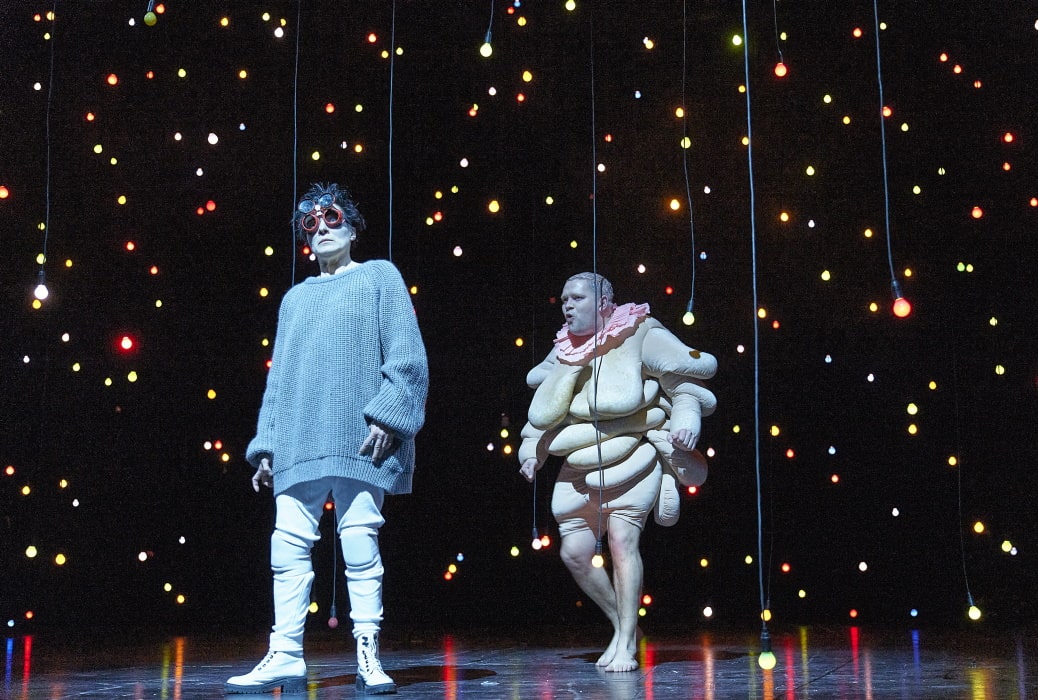Wolfgang Borchert, who was one of the most important authors of the “zero hour” and also an actor, wrote Draußen vor der Tür within eight days in January 1947. Terminally ill after six years of war, various imprisonments and the famine, he had little time left, he knew that. On February 13th of the same year, the radio premiere of the text took place, which elicited such a passionate response that a theatre performance was planned at the Hamburg Kammerspiele on November 21st.
Image above: Draußen vor der Tür, f.l. Kathrin Wehlisch, Jonathan Kempf,Photo: Matthias Horn
With his text, Borchert had put into words an outcry against the tremendous repression of the post-war period, giving a voice to a generation traumatised by war and badly cheated of its youth. One day before the premiere of the play, which according to its subtitle “does not want to play theatre and does not want to see an audience”, Borchert died when he was only 26 years old.
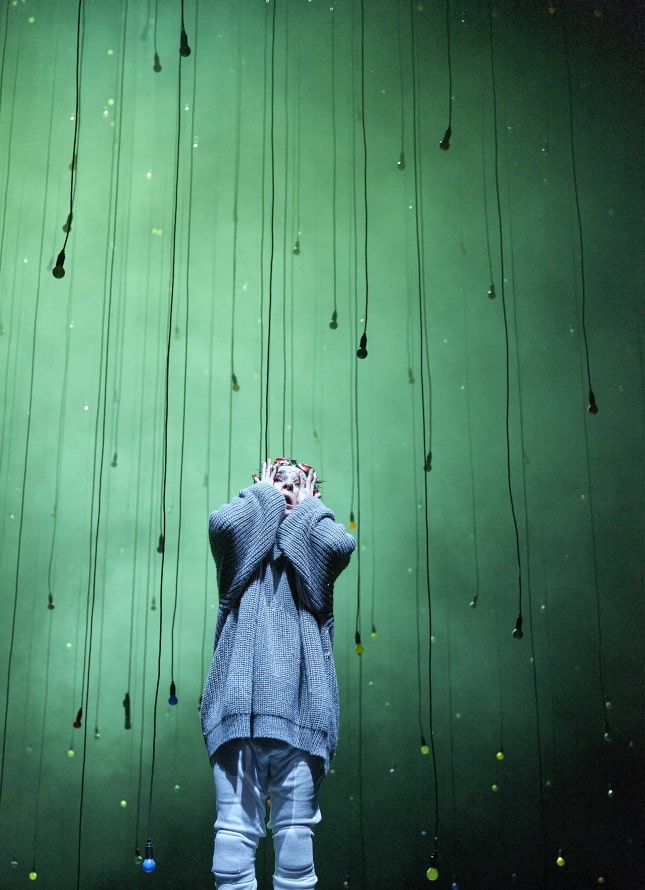
During his lifetime, Borchert was repeatedly imprisoned for months and even received a death sentence: his critical words about Hitler in his letters, his Goebbels parody on a cabaret stage and his veneration for Rainer Maria Rilke, which the Nazis criminalised as alleged homosexuality, were classified as crimes dangerous to the state. The Borchert family was expelled from their Hamburg flat in 1937, denounced by the neighbouring Kramer family for lack of loyalty to the line. Frau Kramer eventually found her way into Borchert’s expressionist drama Stationen-Drama, albeit under different auspices.
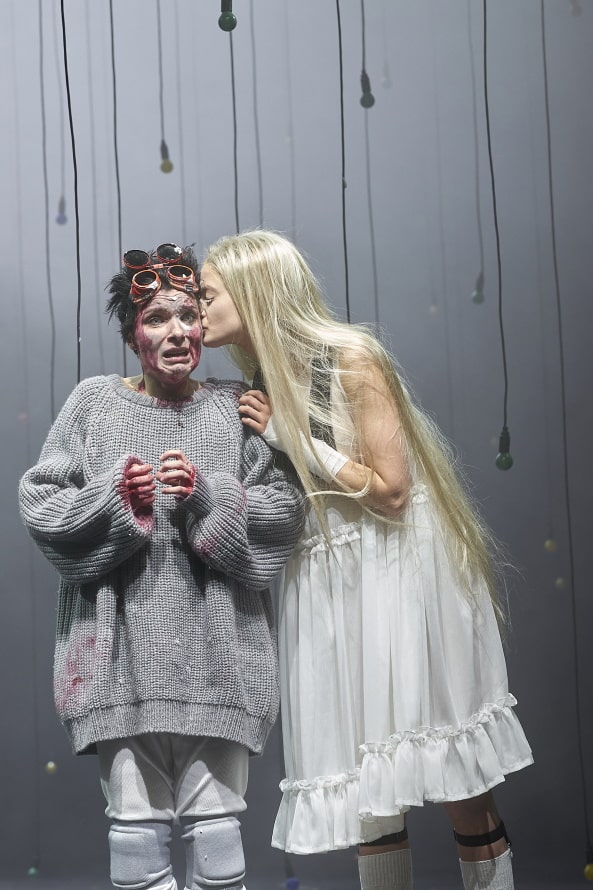
Influenced by his experience as a war returnee, Borchert posed questions in the character of Beckmann – who no longer wants to be murdered and no longer wants to be a murderer – that push far beyond the post-war Germany of 1945, as is painfully clear again at present: What responsibility do we take for the consequences of the wars “outside the door” in which we are involved? What do we want to know about the effects of the violence “outside the door” from which we benefit? How does our society deal with war-traumatised people? Are we willing to do mourning work instead of repression? Who faces the truth of a slaughterhouse before eating their sausage sandwich? What are we doing to prevent war? What kind of world are we sending the generations that follow us into?
Text: Amely Joana Haag
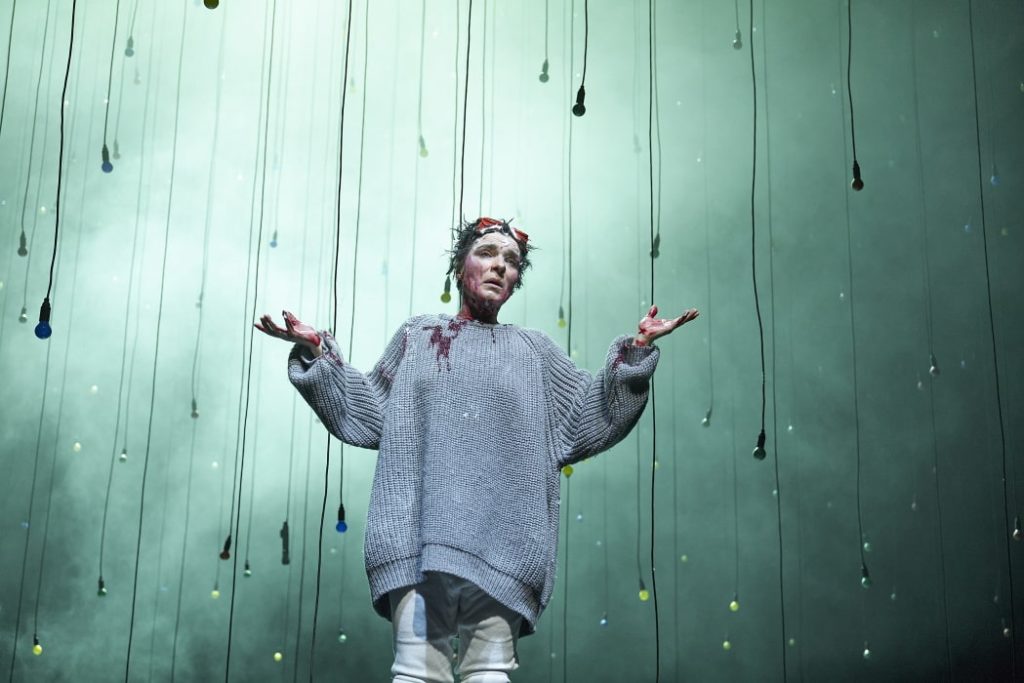
With: Bettina Hoppe, Jonathan Kempf, Oliver Kraushaar, Peter Luppa, Tilo Nest, Josefin Platt, Philine Schmölzer, Veit Schubert, Kathrin Wehlisch
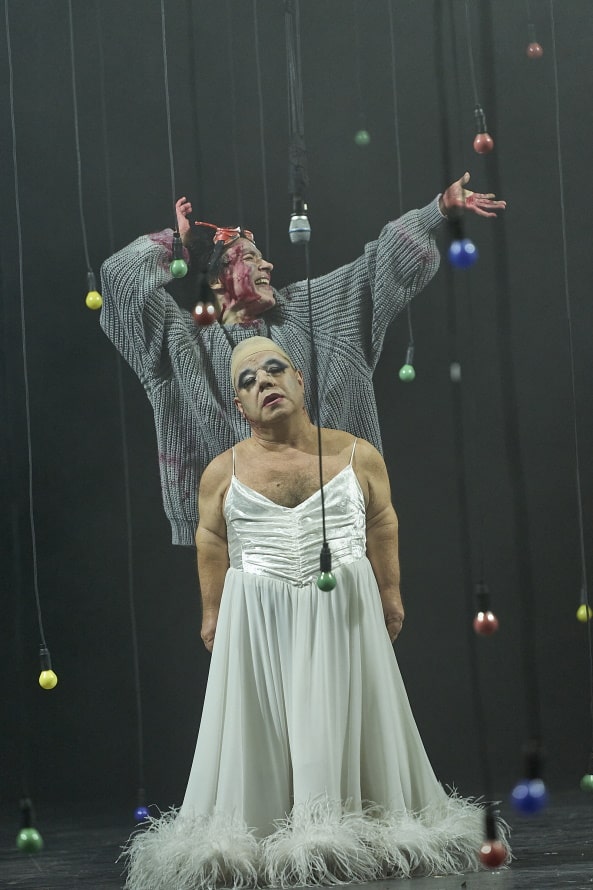
Direction: Michael Thalheimer
Stage: Olaf Altmann
Costumes: Nehle Balkhausen
Music: Bert Wrede
Lighting: Rainer Casper
Dramaturgy: Amely Joana Haag
WHEN?
Saturday, April 30th 2022 – 8:00 pm
Sunday, May 1st 2022 – 6:00 pm
Saturday, May 14th 2022 – 7:30 pm (Introductory talk: 7:00 pm)
Sunday, May 15th 2022 – 6:00 pm
WHERE?
Berliner Ensemble
Großes Haus
Bertolt-Brecht-Platz 1
10117 Berlin-Mitte
+49 30 284 08 155
www.berliner-ensemble.de


